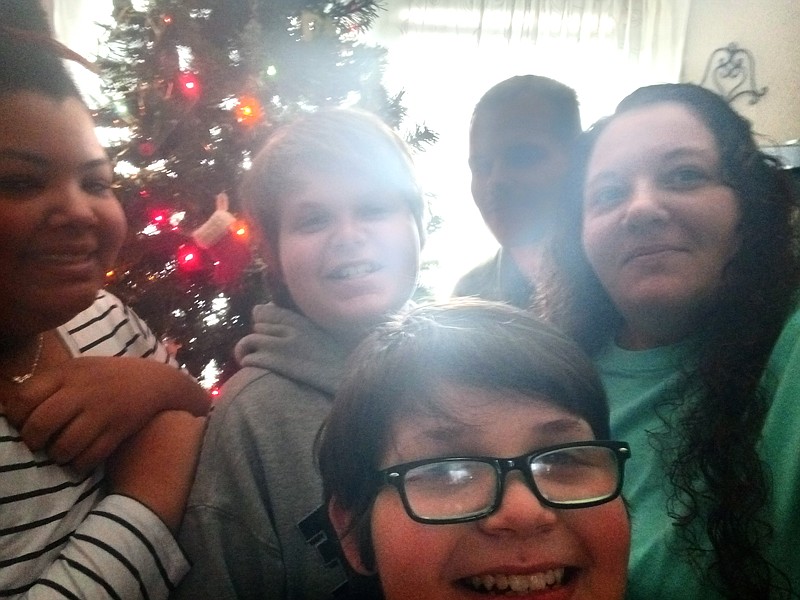Kristi Orick had finally reached the point at which her best just didn't quite get the job done.
Orick shares her Dayton, Tennessee, home with her boyfriend, Scottie Bryant, and her three children – Summer, 14, Andrew, 11, and Cayden, 10. She said that during the 2020-21 school year, her daily routine consisted of getting her kids ready and on the bus, then driving Bryant 36 miles in their one car to his job in Soddy-Daisy.
"That's a lot of miles," Orick said. "I barely had enough time to get him to work after getting the kids on the bus."
Things got a little easier when summer came, but Bryant's job – or, more precisely, his wage – was a problem.
"After all that driving, factoring in the cost of gas, he was only bringing home $100 to $125 per week," Orick said. "Once we bought food, there was no money left to pay the bills."
(READ MORE: Chattanooga man saved from homelessness thanks to Neediest Cases Fund)
This past August, the thread by which the family was hanging finally broke. They couldn't pay their electric bill, and there was considerably more at stake than just being uncomfortable in sweltering summer heat.
"My youngest is autistic," Orick said, "and he does not like the dark."
Orick recalled that when she made her first call for help, she was told that the agency had no emergency funds available. She said someone there suggested calling the United Way of Rhea County.
"I talked to Miss Angie [Drake], and she said she'd definitely try to help us," Orick said. Drake called back a couple of hours later, Orick said, but it wasn't to let her know that help was on the way.
(READ MORE: Neediest Cases helps Dayton, Tennessee, man make ends meet after layoff)
"Within those two hours, the light bill was paid," Orick said.
Bryant said that help from the Neediest Cases Fund changed everything.
"It was a big relief," he said. "Life [to that point] had been very stressful, very aggravating. Sleepless nights. Lot of emotion.
"Now we can focus on the things we couldn't before because we were so aggravated. Now we do things we couldn't do before – we volunteer a lot – and we're happy about doing it.
"It brightened our outlook on life," Bryant said.
Since then, Orick said, Bryant has taken a job in Cleveland, Tennessee, that pays $4 more per hour than his last job. The commute is only slightly shorter, but she said the fact that he works from 11 p.m. to 7:30 a.m. makes school days a lot easier because she doesn't have to drive.
"I'm just home to put the kids on the bus," she said. "It's a lot better than what it was."
(READ MORE: Neediest Cases fund helps Dayton, Tennessee, family stay put)
Started in 1914 by Chattanooga Times Publisher Adolph Ochs, the Neediest Cases Fund provides one-time assistance to people like Orick who are faced with unforeseen circumstances that leave them unable to pay their bills.
Funded by donations from Times Free Press readers, the Neediest Cases Fund is managed by the United Way of Greater Chattanooga and distributed to people in need who are referred by partner agencies.
Recipients are required to be employed to receive assistance from the fund, which fulfills basic needs such as housing, utilities and food to those who need one-time help to become self-sufficient.
Last year, readers donated more than $80,000 to the fund, almost doubling the giving seen in a typical campaign year.
Donations to the Neediest Cases Fund campaign are accepted through the end of December.
